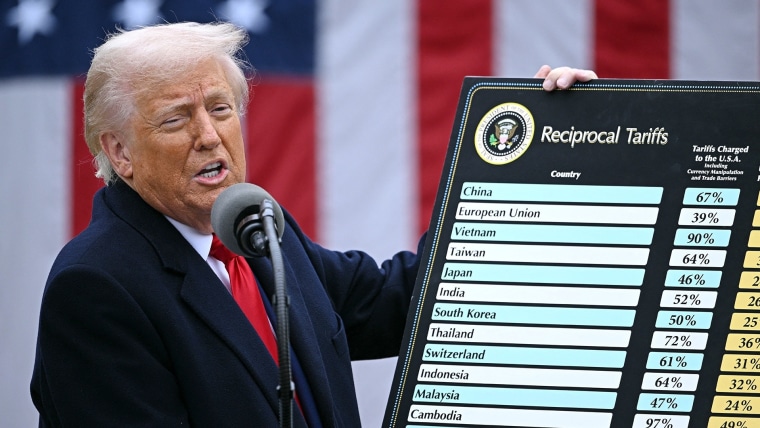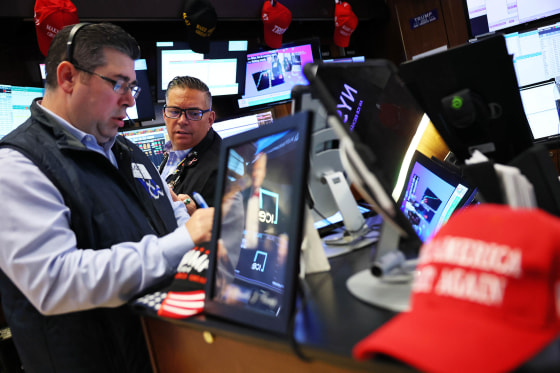Back-and-forth court orders that voided — then reinstated — President Donald Trump's tariffs have injected a fresh dose of uncertainty into markets.
The S&P 500, Dow Jones Industrial Average and the tech-heavy Nasdaq all ended the trading day Thursday with modest gains. Bond yields fell as investors sought out safe-haven assets.
On Thursday afternoon, an appeals court reversed a federal trade panel's ruling some 24 hours earlier that struck down a slew of tariffs targeting other countries.
By granting the Trump administration's request for a stay, the appeals court put those tariffs back into effect while it weighs the case.

The ruling has the effect of lowering the U.S.' average effective tariff rate from 15% to 6.5%, according to Capital Economics consultancy. The ruling did not affect import duties on automobiles, auto parts and steel and aluminum.
A second court ruling Thursday by a U.S. district court came to a similar conclusion as the trade court.
Markets initially cheered the possible elimination of some import taxes. But by Thursday afternoon, most gains had dwindled.
Experts said the courts' decisions ultimately add another layer of uncertainty to Trump's trade-war effort. The administration immediately filed an appeal to the Wednesday decision, and CNBC reported it may ask the U.S. Supreme Court as soon as Friday to pause the rulings.
In a note to clients following the trade court's ruling, Goldman Sachs analysts said despite the decision "might not change the final outcome for most major US trading partners."
The administration may seek to quickly replace the 10% tariff "with a similar tariff of up to 15%" under a different U.S. statute, they wrote, while it works to tap another statute to reimpose duties against larger trading partners.
Even if the nation's highest court were to rule against Trump's tariffs in their current form, "it would be unlikely to mark the end of the tariff war given the various other routes through which the Trump administration could impose tariffs," Capital Economics analysts wrote in a note to clients.
The investment bank UBS warned clients that "significant policy uncertainty remains." Even if the struck-down tariffs do not come back, they wrote, "at least some of the economic impact has likely already begun to take effect."
Analysts with Citi noted the ruling is likely to derail the administration's ongoing trade discussions.
"The administration is likely to either successfully appeal the ruling or to use other authority ... to keep tariff rates high and revenue substantial," they said in a note. "For now, the ruling will complicate and potentially delay trade negotiations."
Trump administration officials said that they were considering alternative ways of reimposing the affected tariffs, but that they were confident their original directives would be reinstated.
"We're going to see what happens on appeal, and we're very confident in our success there," National Economic Council director Kevin Hassett told Fox Business. "But the fact is that there are things, measures ... that we could start right now."
"But we're not planning to pursue those right now because we're very, very confident that this really is incorrect," Hassett added.
Meanwhile, computer chipmaker Nvidia reported that its quarterly revenues had climbed 70%, beating Wall Street estimates. With its chips powering much of the artificial intelligence revolution, Nvidia is now seen as a bellwether for the health of the tech sector and indeed much of the economy as businesses look to incorporate AI into their operations.
As a result, its performance has become tightly correlated to that of the broader market. Nvidia shares were rose nearly 3% Thursday afternoon.


